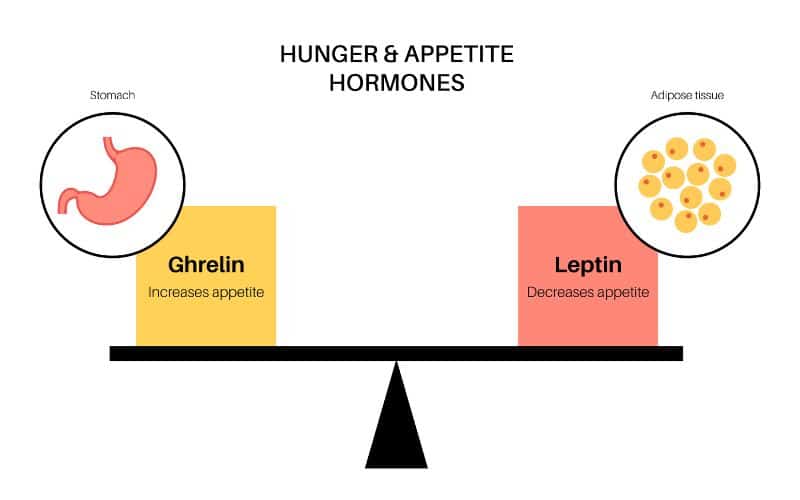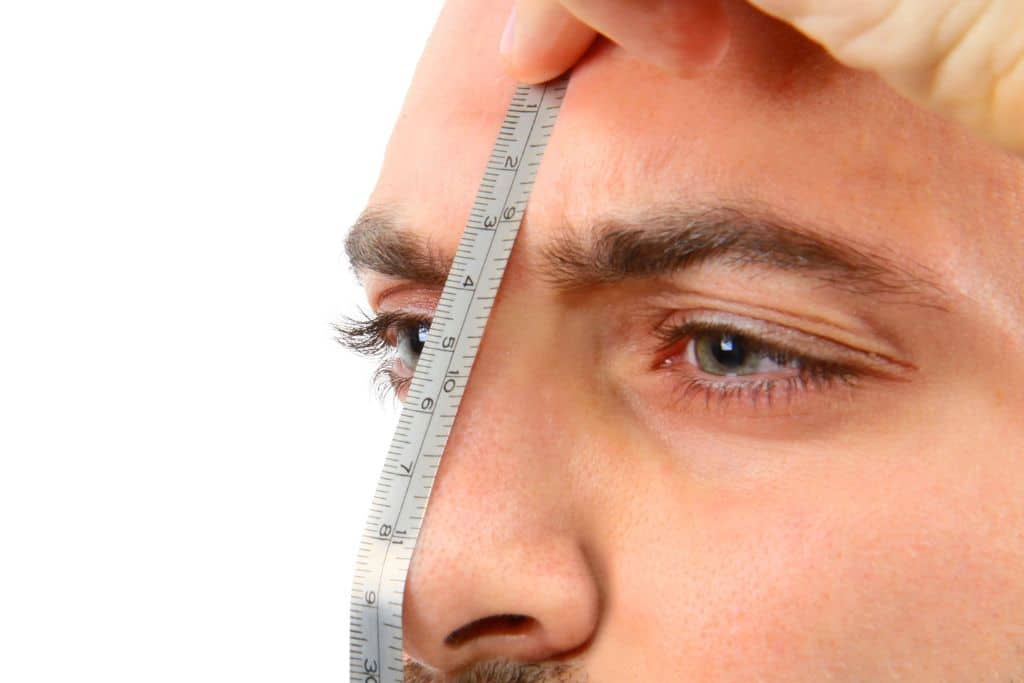Many people struggle with weight loss, and one of the main reasons is the difficulty of dieting. Despite the abundance of diet plans and weight loss programs available, it remains a challenge to stick to a diet and achieve lasting results. But why is dieting so hard?
One reason is that our bodies are designed to hold onto fat as a survival mechanism. When food is scarce, our bodies use stored fat for energy. This means that when we try to lose weight, our bodies resist by slowing down metabolism and increasing hunger signals. In addition, factors such as genetics, age, and hormones can make it even harder to lose weight.
Another reason why dieting is challenging is the abundance of unhealthy food choices and the convenience of fast food and processed snacks. It can be difficult to resist the temptation of high-calorie, high-fat foods, especially when they are readily available and heavily marketed. Making healthy food choices requires planning, preparation, and willpower, which can be difficult to maintain over time.
Contents
Understanding the Concept of Dieting

Dieting is the practice of restricting food intake to achieve a specific goal, such as weight loss or improved health. While it may seem simple in theory, dieting can be incredibly challenging in practice. There are many factors that make dieting difficult, including the science behind weight loss and our emotional attachment to food.
One of the primary reasons that dieting is so hard is that our bodies are designed to resist weight loss. When we reduce our calorie intake, our metabolism slows down, making it harder to burn fat. Additionally, our bodies may start to break down muscle tissue for energy, which can further slow down our metabolism and make it even harder to lose weight.
Another factor that makes dieting difficult is our emotional attachment to food. Many of us turn to food for comfort, pleasure, and stress relief, which can make it hard to stick to a strict diet plan. Additionally, many of us have developed unhealthy relationships with food, such as binge eating or emotional eating, which can be difficult to overcome.
To overcome these challenges, it's important to take a holistic approach to dieting. This means focusing not just on calorie intake, but also on the quality of the food we eat, our emotional relationship with food, and our overall lifestyle habits. By taking a comprehensive approach to dieting, we can improve our chances of success and achieve our health and weight loss goals.
The Psychological Aspect of Dieting
Dieting can be a challenging task, and the psychological aspect of it plays a significant role in determining its success. The following sub-sections explore the role of willpower, the impact of stress and emotions on dieting.
The Role of Willpower
Willpower is a crucial factor when it comes to dieting. It is the ability to resist temptation and make healthy choices. However, willpower is a limited resource, and as such, it can be depleted quickly. When willpower is depleted, it becomes challenging to stick to a diet, leading to overeating or making unhealthy food choices.
One way to overcome this challenge is by planning ahead and reducing the number of decisions that need to be made. For example, meal prepping can help reduce the number of food choices that need to be made throughout the day and reduce decision fatigue.
The Impact of Stress and Emotions
Stress and emotions can have a significant impact on dieting. When stressed, the body produces cortisol, a hormone that increases appetite and cravings for high-calorie foods. Emotions such as boredom, sadness, or anxiety can also trigger cravings for comfort foods.
One way to manage stress and emotions is by practicing mindfulness or meditation. These practices can help reduce stress levels and increase self-awareness, making it easier to recognize emotional triggers and avoid unhealthy food choices.
In conclusion, the psychological aspect of dieting plays a significant role in its success. By understanding the role of willpower and the impact of stress and emotions, it is possible to overcome these challenges and achieve long-term success in maintaining a healthy diet.
Biological Factors Affecting Dieting

When it comes to dieting, there are several biological factors that can make it challenging to lose weight and maintain a healthy diet. These factors include genetics, metabolism, and hunger and satiety hormones.
Genetics and Metabolism
Genetics can play a significant role in how our bodies process and store food. Some people may have a genetic predisposition to store more fat, while others may have a faster metabolism and burn calories more quickly. These factors can make it more difficult for some people to lose weight and maintain a healthy diet.
Metabolism also plays a crucial role in weight loss. When we reduce our calorie intake, our metabolism slows down to conserve energy. This can make it more challenging to lose weight and maintain weight loss over time. It is essential to find a balance between calorie intake and physical activity to ensure a healthy metabolism.
Hunger and Satiety Hormones
Hunger and satiety hormones, such as ghrelin and leptin, can also affect our ability to lose weight and maintain a healthy diet. Ghrelin is a hormone that stimulates hunger, while leptin signals fullness and helps regulate energy balance.
When we reduce our calorie intake, ghrelin levels increase, and leptin levels decrease, making us feel hungrier and less satisfied after meals. This can make it more challenging to stick to a healthy diet and maintain weight loss over time.
In conclusion, biological factors can make it challenging to lose weight and maintain a healthy diet. Genetics, metabolism, and hunger and satiety hormones can all play a role in our ability to achieve our weight loss goals. It is essential to find a balance between calorie intake, physical activity, and other lifestyle factors to ensure a healthy metabolism and successful weight loss.
The Influence of Social and Environmental Factors
Dieting can be a challenging process, and there are many factors that can make it difficult to stick to a healthy eating plan. Social and environmental factors are two key influences that can make dieting even harder.
Peer Pressure and Social Expectations
One of the biggest challenges that people face when trying to stick to a diet is peer pressure and social expectations. For example, if you are trying to eat healthier, but your friends or family members are always encouraging you to indulge in unhealthy foods, it can be hard to resist temptation. Similarly, if you are trying to lose weight, but your coworkers are always bringing in treats and snacks, it can be hard to stay on track.
To combat these challenges, it can be helpful to communicate your goals to your friends and family members. Let them know that you are trying to eat healthier or lose weight, and ask for their support. You can also try to find healthier alternatives to your favorite foods, so that you can still enjoy social occasions without derailing your diet.
Food Availability and Marketing
Another major influence on our diets is food availability and marketing. In many communities, it can be difficult to find healthy, affordable food options. Fast food restaurants and convenience stores are often more prevalent than grocery stores and farmers markets, making it harder to access fresh fruits and vegetables.
Additionally, food marketing can be incredibly persuasive, encouraging us to indulge in unhealthy foods and snacks. From flashy commercials to eye-catching packaging, food companies are experts at getting us to crave their products.
To combat these challenges, it can be helpful to plan your meals and snacks in advance. Make a grocery list and stick to it, so that you don't find yourself reaching for unhealthy options when you're hungry. You can also try to seek out healthier food options in your community, such as local farmers markets or community gardens. Finally, be mindful of food marketing and try to avoid impulse purchases based on flashy advertising.
The Role of Unrealistic Expectations and Goals

One of the main reasons why dieting is so hard is due to unrealistic expectations and goals. Many people have an "ideal" weight in mind that may feel unattainable. This can lead to frustration and disappointment when they don't see the results they want as quickly as they hoped.
Setting a modest weight goal to start can be helpful. Start with a more modest goal that feels doable to you. When met, set a new goal, and then succeed again. Don't put a timeframe on the goal. Your body will lose weight in its own time. According to an article from Diet Doctor, setting realistic expectations can help you stay motivated and prevent you from giving up too soon.
Many dieters believe the inflated promises typical of diet advertisements, which may be the source of at least some of their unrealistic expectations. Diet advertisements promoting unrealistic expectations were expected to inspire restrained eaters to diet and lead to enhanced self-perceptions, relative to more circumspect advertisements, according to a study published on PubMed.
It's important to have realistic expectations when it comes to weight loss. According to an article from Scientific American, eating as the Paleo diet dictates is unrealistic long-term because it is so restrictive, making an enjoyable social life almost impossible. Cutting out so many food groups leads to distressing cravings and feelings of deprivation, which can lead to overeating and weight gain.
In conclusion, having unrealistic expectations and goals can make dieting much harder than it needs to be. Setting realistic goals and expectations can help you stay motivated and on track towards achieving your desired weight.
Importance of Sustainable Lifestyle Changes
Making sustainable lifestyle changes is crucial for long-term success in maintaining a healthy diet. Rather than relying on short-term diets, which can be difficult to stick to and often result in yo-yo weight loss and gain, sustainable lifestyle changes can help to establish healthy habits that last a lifetime.
By making small, gradual changes to your diet and lifestyle, you can achieve significant improvements in your health and well-being. For example, replacing sugary drinks with water or herbal tea, increasing your intake of fruits and vegetables, and choosing whole grains over refined carbohydrates can all contribute to a healthier diet.
Sustainable lifestyle changes are also important because they help to address the root causes of unhealthy eating habits. For example, stress, boredom, or emotional eating can all contribute to overeating or unhealthy food choices. By identifying and addressing these underlying issues, you can develop healthier coping mechanisms and habits that will support your long-term health and well-being.
Finally, sustainable lifestyle changes are important because they can help to create a positive feedback loop. When you make healthy choices and see positive results, such as improved energy levels or better sleep, you are more likely to continue making healthy choices in the future. This can help to create a virtuous cycle of healthy habits that support your overall health and well-being over the long term.
Conclusion
In conclusion, dieting is hard because it requires a significant amount of self-discipline and motivation. It is not easy to change long-standing habits and behaviors, especially when it comes to food. There are many factors that can make dieting difficult, including biological, psychological, and environmental factors.
One of the biggest challenges of dieting is the fact that our bodies are designed to resist weight loss. When we lose weight, our bodies respond by slowing down our metabolism and increasing our hunger hormones, making it harder to maintain the weight loss. Additionally, many people struggle with emotional eating, which can make it difficult to stick to a healthy diet.
Another challenge of dieting is the abundance of unhealthy food options that are readily available and often cheaper and more convenient than healthier options. This can make it difficult to make healthy choices, especially for those on a budget.
Despite these challenges, it is important to remember that dieting is not impossible. With the right mindset, strategies, and support, it is possible to make lasting changes to your diet and achieve your weight loss goals. Some tips for successful dieting include setting realistic goals, tracking your progress, finding a support system, and focusing on making sustainable lifestyle changes rather than quick fixes.
Ultimately, the key to successful dieting is finding what works best for you and your body. By understanding the challenges of dieting and taking a balanced, realistic approach, you can overcome these obstacles and achieve your health and wellness goals.
Frequently Asked Questions
Why is losing weight so mentally hard?
Losing weight is not just about changing your diet and exercise habits. It can also be mentally challenging. Many people struggle with emotional eating, which is when they eat to cope with stress, anxiety, or other emotions. Additionally, the process of losing weight can be slow and frustrating, which can make it difficult to stay motivated. It's important to address the mental aspects of weight loss and develop strategies to manage emotional eating and stay motivated.
Why is it hard to lose weight when you get older?
As you age, your metabolism slows down, which means you burn fewer calories at rest. Additionally, you may be less active than you were when you were younger, which can also contribute to weight gain. Hormonal changes, such as menopause, can also make it harder to lose weight. However, it's still possible to lose weight as you age with the right diet and exercise plan.
Why is it so hard to lose weight after 40?
After 40, your body undergoes hormonal changes that can make it harder to lose weight. Specifically, your body produces less estrogen and testosterone, which can lead to a decrease in muscle mass and an increase in body fat. Additionally, your metabolism slows down as you age, which means you burn fewer calories at rest. However, it's still possible to lose weight after 40 with the right diet and exercise plan.
Why is it so hard to lose belly fat?
Belly fat is often the most stubborn type of fat to lose. This is because belly fat is typically visceral fat, which is located deep in the abdomen and surrounds your organs. Visceral fat is more metabolically active than other types of fat, which means it's harder to burn off. Additionally, belly fat is often associated with insulin resistance, which can make it harder to lose weight. However, with the right diet and exercise plan, it is possible to lose belly fat.
What is the hardest part of dieting?
The hardest part of dieting is often sticking to it. It can be difficult to make long-term changes to your diet and lifestyle, especially if you're used to eating a certain way. Additionally, social situations, such as eating out or attending parties, can make it challenging to stick to your diet. It's important to develop strategies to stay on track, such as meal planning and finding healthy alternatives to your favorite foods.
Does dieting ever get easier?
Yes, dieting can get easier over time. As you develop healthy habits and make progress towards your weight loss goals, it can become easier to stick to your diet. Additionally, as you lose weight, you may find that you have more energy and feel better overall, which can be motivating. However, it's important to remember that weight loss is a journey, and there may be ups and downs along the way.






